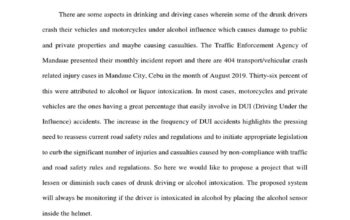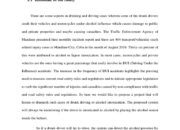The concept of European unity has long been intertwined with the notion of collective progress, particularly in the arena of science. Europe, with its rich tapestry of cultural and intellectual heritage, stands at a poignant juncture where it may wield significant influence on the trajectory of global scientific advancement. Historically, the European Union (EU) has fostered collaboration among its member states, facilitating initiatives that emphasize the importance of shared knowledge and resources. However, the question arises: can the EU truly lead global science, and if so, what are the underlying factors contributing to this potential?
At the heart of this inquiry lies the recognition that scientific enterprise necessitates a robust framework of cooperation. The EU, comprising 27 member states, represents a unique amalgamation of diverse scientific traditions and capacities. This heterogeneity can be an asset—enabling multifaceted approaches to common challenges such as climate change, public health crises, and technological innovation. The collaborative research programs initiated by the EU, such as Horizon Europe, epitomize this integrative ethos, leveraging transnational partnerships to tackle issues that transcend geographical boundaries. These initiatives not only bolster scientific prowess within Europe but also project its influence on the global stage.
Nevertheless, leading global science is not merely a matter of structural organization or resource allocation. It necessitates a paradigm shift in the way scientific inquiry is conceptualized and executed. The EU’s potential to spearhead scientific advancement may be hindered by internal divergences in policy, funding, and research priorities. The varying degrees of commitment to investment in research and development (R&D) among member states underpin a fragmented landscape. For instance, countries with robust economies tend to allocate a greater percentage of their GDP to R&D, while others grapple with fiscal constraints, resulting in an uneven distribution of resources. Bridging this divide is crucial for shaping a cohesive scientific agenda that resonates with the aspirations of all member states.
Furthermore, the relationship between academia and industry is pivotal in the iteration of successful scientific innovation. The EU has made strides toward fostering public-private partnerships; however, the intricacies of aligning academic research agendas with corporate interests pose challenges. Effective collaboration requires an ecosystem where entrepreneurial ventures thrive alongside scholarly pursuits. This dynamic not only enhances the applicability of scientific discoveries but also cultivates a culture of innovation—encouraging the translation of research findings into marketable solutions. To fortify its position in global science, the EU must cultivate an interdisciplinary milieu, fostering synergies between disparate sectors while nurturing a propensity for risk-taking among researchers and entrepreneurs alike.
The interplay between ethics and scientific pursuits also warrants scrutiny. As Europe navigates its scientific landscape, it grapples with ethical considerations that may not be as rigorously examined in other global contexts. The EU’s commitment to upholding stringent ethical standards in research—particularly in biotechnology, artificial intelligence, and data privacy—serves as both a beacon of accountability and a potential hindrance to rapid scientific advancement. While a robust ethical framework mitigates risks associated with scientific exploration, excessive caution can stifle innovation. Striking a judicious balance between ethical imperatives and the ambition to lead requires nuanced governance and foresight.
Moreover, the geopolitical climate has an indelible impact on the EU’s capacity to influence global science. Amidst rising nationalism and protectionist sentiments, transnational collaboration is often overshadowed by isolationist tendencies. The EU’s ability to promote collaborative scientific initiatives is contingent upon its diplomatic engagement with non-European nations. Developing synergies with emerging economies, particularly in Asia and Africa, is essential for fostering a truly global scientific enterprise. By facilitating knowledge exchange and investing in capacity-building initiatives abroad, the EU can not only enhance its scientific leadership but also reinforce its commitment to global equity in research.
Another facet deserving contemplation is the role of education in sculpting the scientific landscape of the future. Europe’s universities and research institutions are renowned for their academic rigor; however, access to quality education is not uniformly distributed. Efforts to enhance inclusivity in STEM (science, technology, engineering, and mathematics) fields, particularly for underrepresented groups, are imperative for harnessing the full spectrum of human potential. Initiatives that encourage diversity within the scientific community will cultivate a plethora of perspectives and ideas, ultimately enriching scientific discourse and innovation. The EU’s initiatives aimed at bolstering educational access can serve as a catalyst for engendering the next generation of scientists who may assume leadership roles in global scientific endeavors.
In conclusion, while the European Union possesses substantial assets that can propel it toward a leadership role in global science, several formidable challenges must be navigated. An integrated approach that amalgamates diverse research capabilities, fosters public-private partnerships, emphasizes ethical considerations, engages in international diplomacy, and expands educational access is paramount. As Europe endeavors to craft a vision of collective progress in science, it is imperative to remain cognizant of the intricate interplay of these factors. Thus, the aspiration for the EU to lead in global science is not merely a dream tethered to the continent’s historical legacy, but rather a mission that calls for sustained collaboration, innovation, and an unwavering commitment to the values of inclusivity and ethical responsibility.












